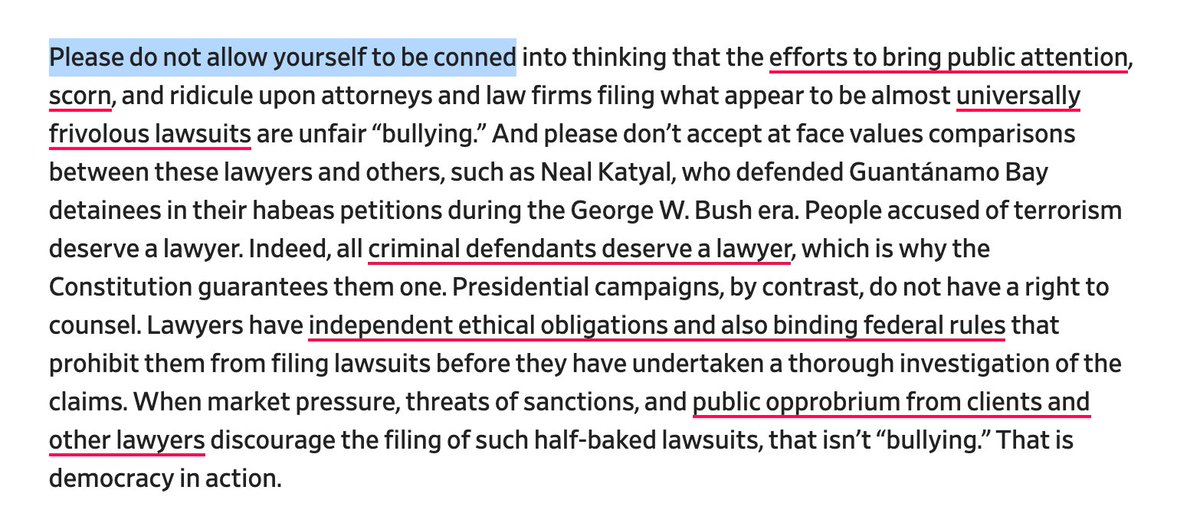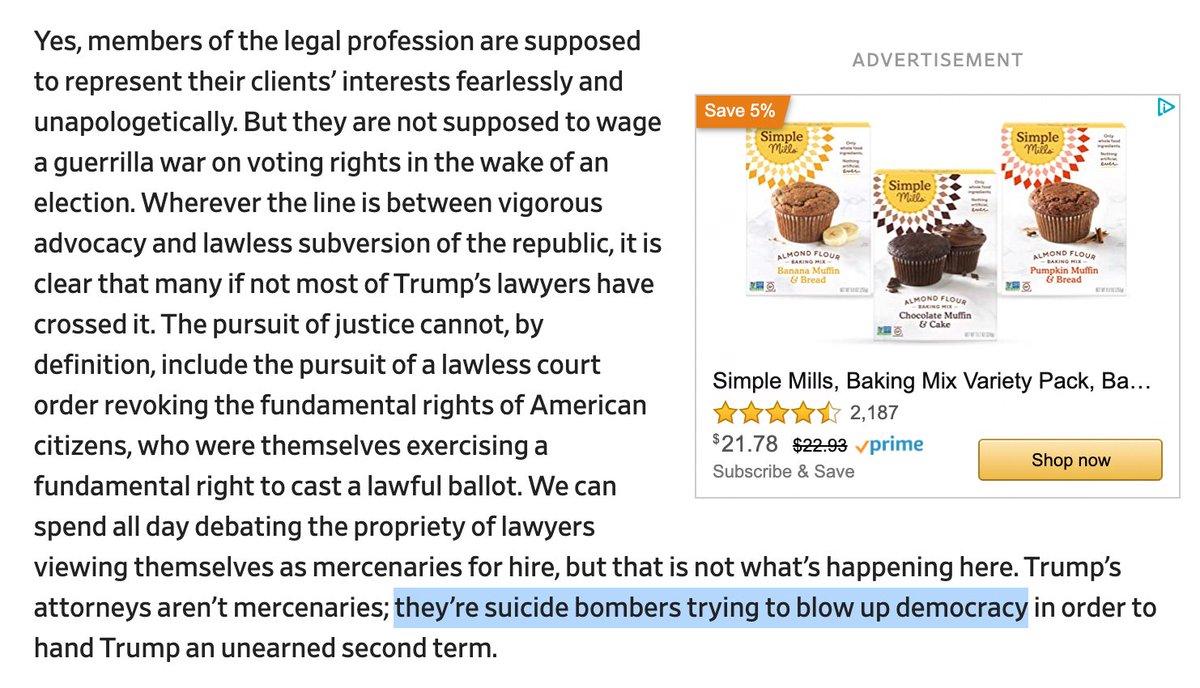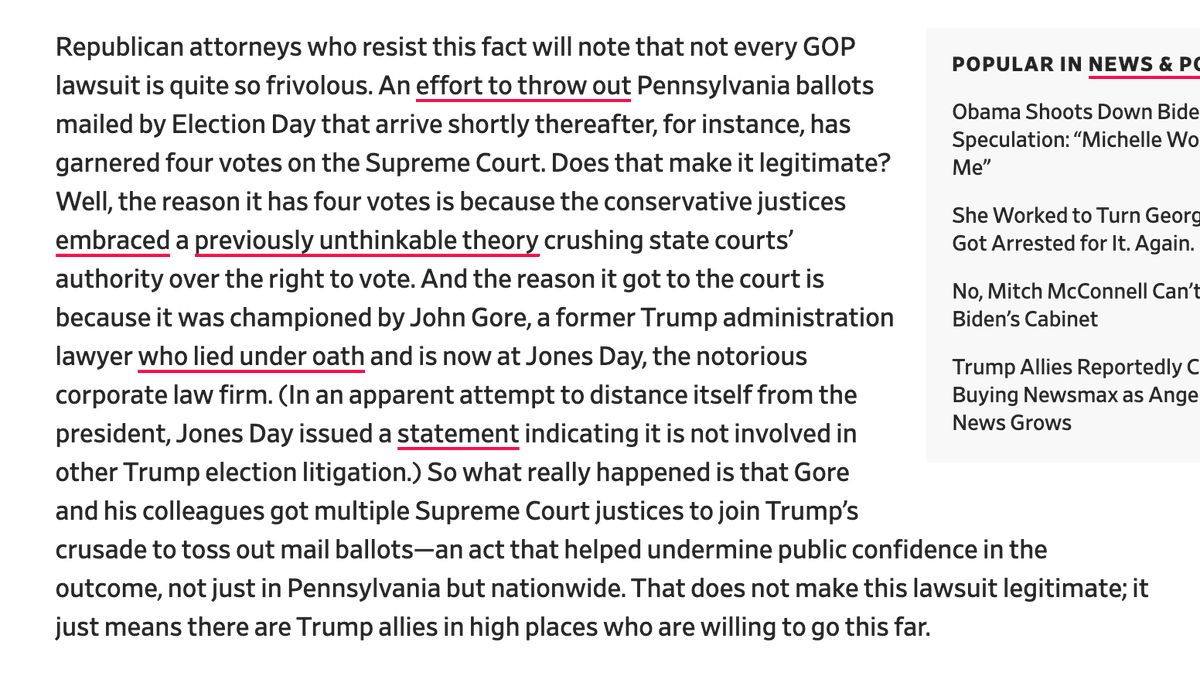
Cool 4th Am Q raised by this new op: If a judge reviews a warrant application, and thinks the facts described may violate the 4A, should she apply the 4A, including the exclusionary rule, to decide whether to sign the warrant?
Long thread below.
drive.google.com/file/d/1c6OlGx… #N
Long thread below.
drive.google.com/file/d/1c6OlGx… #N

Some context:
In the ordinary case, an affidavit describing probable cause will state the facts supporting probable cause. If those facts amount to probable cause, the judge will sign the warrant.
In the ordinary case, an affidavit describing probable cause will state the facts supporting probable cause. If those facts amount to probable cause, the judge will sign the warrant.
If charges follow and the defense moves to suppress, the defense can argue that the fruits of the warrant should be suppressed because of a prior 4th Amendment violation.
The Q in this case is, can the judge make that call at the warrant application stage, too, and not sign?
The Q in this case is, can the judge make that call at the warrant application stage, too, and not sign?
In this case, the government has applied for a warrant to search a computer. So far, so good.
But the affidavit does something unusual: It presents a legal argument for why the 4A hadn't been violated by the delay between the computer's seizure and the warrant application.
But the affidavit does something unusual: It presents a legal argument for why the 4A hadn't been violated by the delay between the computer's seizure and the warrant application.

The legal argument drew the Magistrate Judge's attention. The judge wondered, is that an accurate description of precedent? Is this a good legal argument?
The court invited briefing from the govt (the only party in the ex parte warrant application).
The court invited briefing from the govt (the only party in the ex parte warrant application).

The MJ then writes a 4A opinion on whether the 4A seems to have been violated by the pre-application delay, which the MJ assumes is equivalent to whether the warrant should be rejected. If the 4A was previously violated, the thinking runs, she shouldn't sign the warrant now. 

At the end, the MJ concludes that the delay was unreasonable. But she then concludes that the violation was de minimis, and that issuing the warrant is "appropriate." 

Lots going on here, but my own take is that a magistrate judge reviewing a warrant application shouldn't consider this issue at all. The affidavit shouldn't include legal arguments, and the judge shouldn't try to rule on those legal arguments. Related: virginialawreview.org/sites/virginia…
I get the other side: If the government violated the 4A up to that point, and warrant search fruits would be suppressed, isn't it better to litigate the issue at the warrant stage so the warrant isn't issued at all? But I don't think this works.
First, you can't know at the application stage whether search warrant fruits would ultimately be suppressed. Maybe the delay, considered alone, would be a problem. But maybe not, for many reasons. For example, perhaps charges would be brought against someone w/o standing.
Second, how do you litigate this at the ex parte stage? There is no adversarial briefing. And if the MJ is wrong, the procedure for having an appeal is tricky. If the MJ wrongly ruled for the govt, there's no opposing party in the case who can appeal it.
And if the MJ wrongly ruled against the govt, do you stop the investigation midstream, with the computer unsearched, for a few years' worth of appeals?
Third, what version of the exclusionary rule do you apply? Do you include the good faith exception, giving deference to what you would have done if you did something you didn't do? Or do you create your own exclusionary rule doctrine? Seems a mess.
Granted, it may be that the government violated the 4th Amendment before they applied for the warrant. And if so, that's bad, and motions to suppress or civil actions can follow. But I don't think the fact of an application should be treated as a moment to litigate everything.
My sense, at least. Interesting issue! More on the Magistrate Judge, Sarah Merriam, below. /end law.yale.edu/yls-today/news…
• • •
Missing some Tweet in this thread? You can try to
force a refresh









